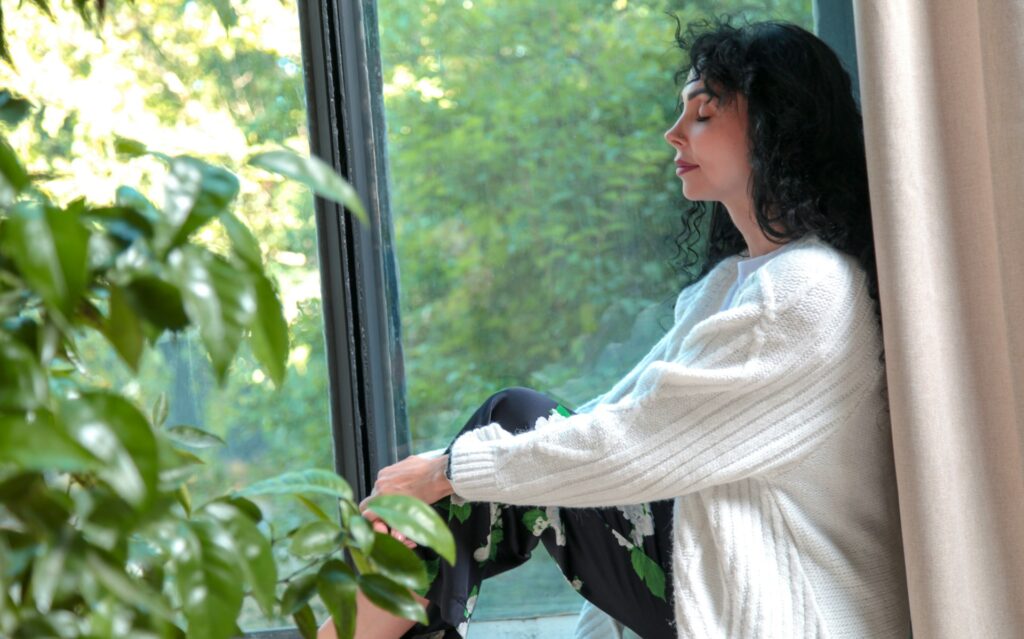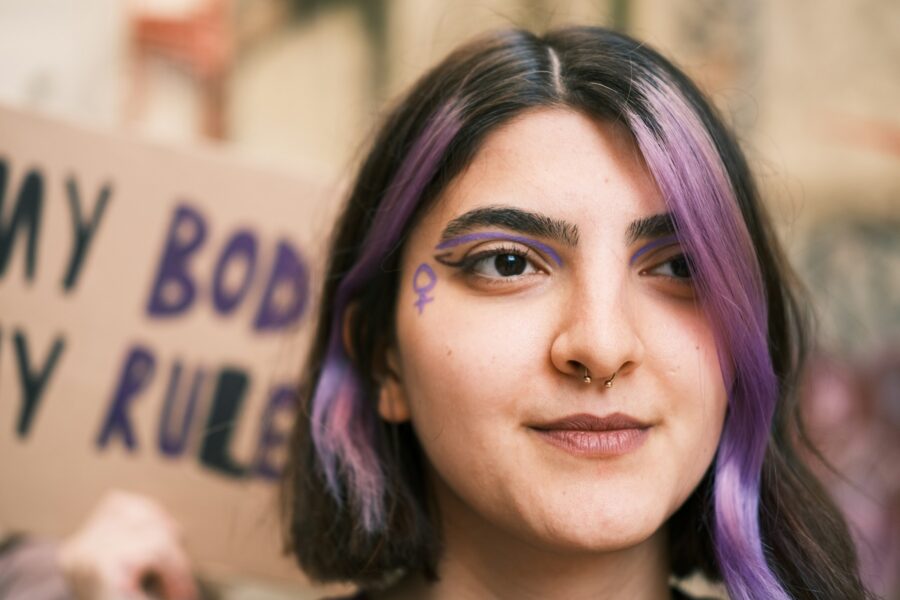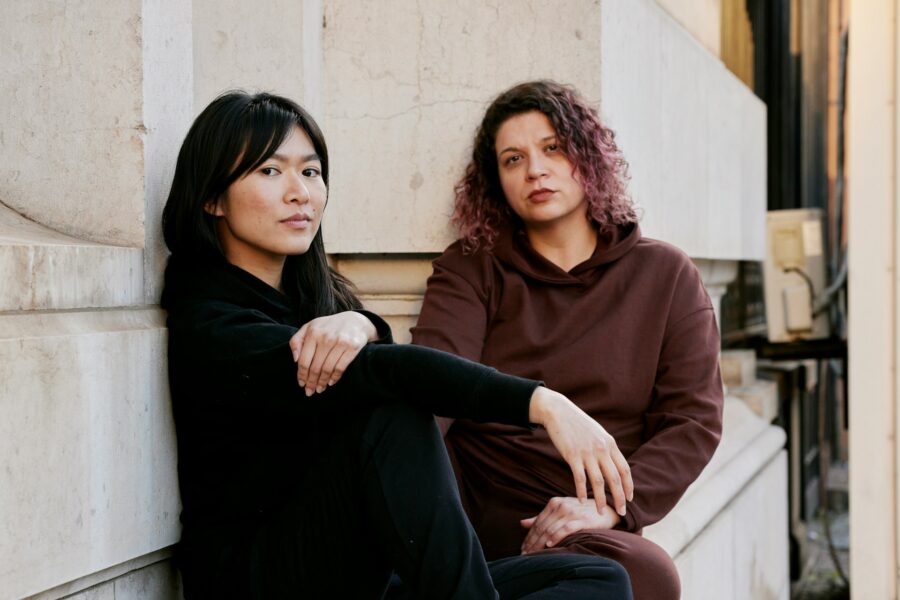Mindfulness often gets tangled up with images of people sitting cross-legged on mountaintops or sipping herbal tea in total silence.

That’s ridiculous, really—you don’t have to be calm, spiritual, or vaguely glowing to practise it. Mindfulness doesn’t require perfection—you just need to do more noticing. It’s about showing up to your life on purpose, even if that life looks a bit messy and loud. More often than not, it’s the smallest, scrappiest moments of awareness that count the most. Here are some ways mindfulness quietly shows up in everyday life, without you needing a yoga mat or a spiritual awakening.
1. Taking a breath before you hit ‘send’ on that snarky reply

We’ve all been there—someone says something annoying, and you feel that reply brewing in your thumbs. However, then you stop, reread, and delete half the message. That pause? That’s mindfulness.
You’re not bottling up your feelings. Instead, you’re making a conscious decision instead of letting your knee-jerk reaction do the talking. Choosing your response rather than reacting on autopilot is a deeply mindful move, even if it takes only three seconds.
2. Noticing when your brain starts spiralling, and calmly stepping out of it

Mindfulness doesn’t mean your brain is quiet all the time. Often, it’s the opposite. But that moment you realise, “Hang on, I’ve been replaying the same conversation for 20 minutes, and now I feel awful”? That’s awareness kicking in. You don’t have to fix the spiral right away, but just catching it—without shame or panic—is huge. That awareness is a crack of light. It gives you room to change, even if only slightly.
3. Actually tasting your food instead of scrolling through lunch

This doesn’t mean you need to chew each bite 30 times in silence. However, every now and then, putting your phone down, paying attention to the texture of your meal, and checking in with how full you are is known as mindful eating. It turns a routine moment into something grounding. Even one mindful meal can break the cycle of numbing and rushing, and reconnect you to your body in the middle of a busy day.
4. Feeling triggered, and choosing not to take it out on someone else

Mindfulness isn’t about never feeling angry. It’s about knowing when you’re activated and choosing not to let that state spill all over the people around you. That moment of emotional self-check-in is where the real work happens. You can say, “Give me a second,” instead of exploding. You can name the feeling—“This really stung”—instead of unleashing it. It’s not polished or perfect, but it’s intentional, and that changes everything.
5. Catching physical tension before it snowballs

Your shoulders are up to your ears. Your jaw’s locked. Your breath is shallow. Then you notice, and you let go. That tiny release is mindfulness living in your body. These small resets don’t just ease physical stress. They help you return to the moment. You’re not just surviving the day on muscle memory. You’re stepping back into it, even if only briefly.
6. Letting yourself fully enjoy something instead of rushing through it

Whether it’s a warm drink, a song that gives you chills, or five quiet minutes before your house wakes up, letting yourself actually *feel* the moment is a form of mindfulness. You’re not using it as a reward or productivity hack. You’re just experiencing it, without multitasking. That small act of presence says, “I’m here. This is enough, right now.”
7. Catching your inner critic mid-thought and pushing back

You know that voice that says, “You’re behind,” or “You sounded weird just then”? Mindfulness is when you notice it before it takes over, and get curious about it instead of just believing it. Even saying, “Hmm, interesting that I went there” creates a change. You don’t have to banish the thought. You just have to decide it doesn’t get to run the show.
8. Choosing silence over noise, just for a minute

Instead of immediately reaching for a podcast, a playlist, or background TV, you walk in silence. You cook in quiet. You drive without filling the space. That decision to let your mind breathe is mindfulness too. You might not have a breakthrough moment, but you’ll start to hear what’s actually going on inside you beneath all the external input.
9. Stopping before you say “yes” to something that drains you

When someone asks for your time or energy, and you actually check in with yourself first—that’s a huge act of mindfulness, especially if your default has always been to please, to say yes, to accommodate. Mindfulness here looks like asking, “Is this a full-body yes? Or a guilt-driven maybe?” and answering accordingly. That moment of self-honesty is where real boundaries begin.
10. Letting emotions sit without immediately fixing or explaining them

You feel off. Instead of jumping straight into distraction or self-diagnosis, you let the feeling land. You don’t rush to numb it or turn it into a productivity lesson. You just breathe and let it be. This is one of the hardest forms of mindfulness, but one of the most powerful. You learn that feelings can be intense and temporary. That you can hold space for discomfort without it drowning you.
11. Realising you’re doomscrolling, and deciding to stop

You’re halfway through a comment section that’s made you feel terrible—and suddenly, you pause. You look up. You close the app. That flicker of awareness? That’s mindfulness trying to rescue you from digital autopilot. That’s not to say you can never scroll—that’s a bit unrealistic. It’s more about knowing when to say, “Okay, that’s enough. Time to come back to my life now.”
12. Saying, “I need a break” before you hit your limit

Burnout often creeps up when we ignore the small signals. Mindfulness is what helps you catch them earlier—the sighs, the irritation, the brain fog. Instead of powering through, you honour the message and step back. That decision to pause isn’t indulgent. It’s preventative. It’s you being on your own side, instead of waiting for a crash to prove your limits.
13. Admitting when you were wrong, without spiralling

Mindfulness shows up in how you hold your mistakes. It helps you separate your slip-up from your identity. “I got it wrong” doesn’t become “I’m a failure.” That self-awareness lets you clean things up and move on, instead of carrying the shame around like a badge. That’s real emotional maturity, and it starts with presence.
14. Letting little moments of joy actually land

When someone makes you laugh. When you get good news. When your favourite song comes on in the supermarket, and you let yourself bop along instead of rushing past it—those are mindful moments, too. They’re small, but they count. Mindfulness isn’t always about calming the chaos. Sometimes, it’s just about remembering to feel the joy while it’s here, instead of missing it entirely.


